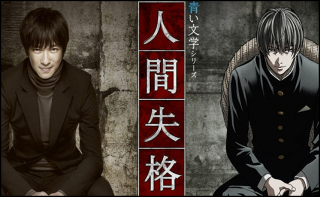Blue Literature
| Blue Literature | |
|---|---|
 Blue Literature, aka Aoi Bungaku | |
| Directors | Atsuko Ishizuka (eps 11-12), Morio Asaka (eps 1-4), Ryosuke Nakamura (eps 9-10), Shigeyuki Miya (eps 7-8), Tetsuro Araki (eps 5-6) |
| Format | Anime (TV) |
| Made By | Madhouse Studios |
| # of Episodes | 12 |
Contents
Genre
Sum it up in a Sentence:
Timeless Japanese stories that explore the human psyche.
Main Description
Blue Literature ("Blue" having the connotation of young, so essentially "Timeless Literature") is an anime series compiling very abbreviated adaptations of several classic Japanese novels and tales. They are:
No Longer Human: The life and path of a man who feels alienated by society and the idea of "humanity". (The source novel is one of the most famous Japanese works in the United States, and some of you may be moderately familiar with it due to its influence on the title character of Sayonara Zetsubou Sensei.) (Episode 1-4)
Sakura no mori no mankai no shita: A love story between a 12th-century woman and a mountain bandit who abducts her. (Episode 5-6)
Kokoro: A 1914 tale of a young man's life journey during the Meiji era. The work deals with the transition from the Japanese Meiji society to the modern era, by exploring the friendship between a young man and an older man he calls "Sensei". Underlying it is the conflict between the introduction of modern western values in Japan, and their conflict with classic Confucian-derived values. (Episode 7-8)
Run, Melos!: An updated retelling of a classic Greek tale of the story of Damon and Pythias. The most prominent theme of "Run, Melos!" is unwavering friendship. (Episode 9-10)
The Spider's Thread: Kandata, an evil bandit, is executed. His soul ends up in hell due to his incredible sins. The single good deed of his life, however, could mean his deliverance. (Episode 11)
Hell Screen: A famous painter is commissioned to create his greatest work, a depiction of the Buddhist Hell. Having never experienced hell in his life, he is forced to create his own... (Episode 12)
If You Liked This, You Might Like...
Personal Opinions
Zorak
A very good series with some very interesting looks at Japanese literature.